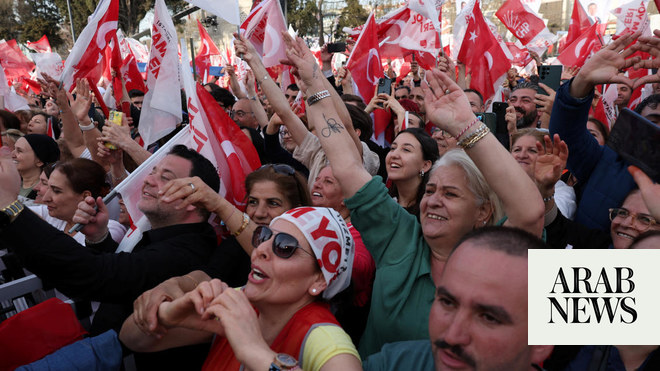
Modi’s government scrapped Kashmir’s autonomy and statehood in 2019
He promised to restore it during election campaign in the region last month
NEW DELHI: Voters in Indian-controlled Jammu and Kashmir went to the polls on Tuesday in the final round of local elections, as Prime Minister Narendra Modi promised to restore the region’s statehood.
Modi’s government brought Kashmir under New Delhi’s direct control in 2019, after it repealed Article 370 of the constitution — which granted the region its semi-autonomy — and downgraded it from a state to a federally administrated territory.
The three-phase polls that started last month are the first in this political setting.
The election has been held in three stages from Sept. 18 to choose a 90-member local assembly. The result will be announced next week.
More than 9 million Kashmiris were registered to vote. In the first phase, the turnout was in excess of 61 percent, and in the second, 57 percent — relatively high for the region traditionally known for boycotting elections.
“The motivation is that the people want their statehood back,” Subhash Chandra Sharma, and advocate in Jammu, which was the last area to cast ballot votes, told Arab News.
“There is a strong resentment among the people that Article 370 was wrongly abrogated. Jammu people are feeling the pinch of losing the special constitutional status.”
Indian-controlled Jammu and Kashmir is part of the larger Kashmiri territory, which has been the subject of international dispute since the 1947 partition of the Indian subcontinent into Hindu-majority India and Muslim-majority Pakistan.
Both countries claim Kashmir in full and rule in part. The Indian-controlled region is predominantly Muslim and has for decades witnessed outbreaks of separatist insurgencies to resist control from the government in New Delhi.
After the scrapping of Kashmir’s autonomy and statehood, a series of administrative changes followed, with the Indian government removing protections on land and jobs for the local population, which many likened to attempts at demographically altering the region.
The promise to restore the statehood was given by Modi last month as he visited Kashmir’s main city, Srinagar, to campaign for his party in the local election. He said that he has pledged in parliament that “Jammu and Kashmir will again be a state” and that only his Bharatiya Janata Party “will fulfill this commitment.”
Kashmir has been without a local government since 2018 when Modi’s Hindu-nationalist party brought down a coalition government elected in 2014, forcing the assembly to dissolve.
“So far, as the voting is concerned, I feel the BJP will not perform well in the Kashmir region and even in the Hindu-dominated Jammu region their performance would go down,” Sharma said.
Qazi Insha Shakeel, a homemaker, also from Jammu, said that people “feel the loss” of their region’s special status and statehood.
“If we elect our leader, then that leader without power would be meaningless,” she told Arab News. “Statehood is important to restore the power of the elected representatives so that they can address our grievances.”
For others, such as Aijaz Ahmad, a business professional from Srinagar, the election also meant a chance for the regain part of its agency.
“(To) vote is the only option for us to save our dignity,” he said.
“Without statehood, our elected representatives are powerless, and this election will hold no meaning.”












